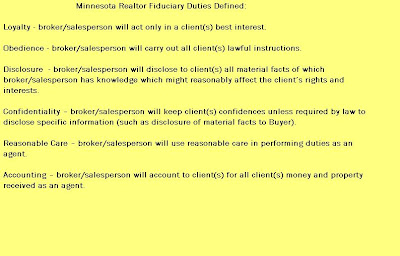A day or two before Christmas, our copy of the January 2008 Ham Laker Newsletter arrived from the City of Ham Lake. I noticed it nestled between the holiday cards and did a quick glance over the headline, “Please Answer our Community Survey”, before tearing into the envelopes that held the photos, wishes and good tidings from our family and friends. It wasn’t until the Christmas gift wrap had been cleared that I had a chance to sit down and actually read it.
Being a Realtor who likes to blog to keep residents informed on Ham Lake and Anoka County, I read every issue of The Ham Laker cover to cover to get the news from the city council meetings and community. Luckily even though the January issue was poorly timed, I did not make an exception.
On closer examination of the story on the community survey, I read the words, “financially feasible sewer and water system.”
Hmmmm…I had heard that there was talk about developing the corner of Highway 65 and Crosstown for additional commercial development. I had read about the task force of 30 people that were investigating options. Reading further, I became a bit concerned as I read between the lines, it sounded like they were seriously considering bringing city water and sewer into Ham Lake and implying it would lower our taxes.
Looking closely at the map, the proposed area included areas around Coon Lake. I was becoming mildly concerned.
A few days after the New Year, the January issue of Lakes and Loons arrived. This year old privately funded publication has been giving a different side of the news since it’s inception first issue. Their headline was not a bit vague. Ham Lake Sewer District: $75 Million…Plus Interest
Ouch…The Ham Lake city council was not just considering a northern city water and sewer system, they were talking numbers. Reading the article was eye opening!
- The task force is not made up of Ham Lake residents.
- No citywide vote is scheduled for this massive change to the Ham Lake community.
- A community center is being considered along with walking and bike paths.
- High density housing would be an option in areas where the city utilities are available.
- Several proposals are being considered to pay for the proposed city utilities. One funded completely by developers.
Now as a Realtor working in Anoka County, this concerns me. People consider Ham Lake because of the rural life style and close proximity to the city. These changes will have
an immediate affect on property values. Right now, any homeowner in Ham Lake would have to
disclose to a buyer that city water and sewer are being discussed as an option. This could deter a buyer from considering a purchase of a home as the costs to abandon a septic system, seal a private well and connect to public utilities will run into the tens of thousands of dollars.
How do you escrow for unknown assessments and costs?
With current time on the market for a Ham Lake home being counted in months not days; this is going to be another blow to the Ham Lake home seller.
View 4th Quarter Ham Lake real estate market statistics here.If your Ham Lake home is not in the area where the public utilities are being considered but you live nearby, your home value can still be affected. I have sold homes in Centerville, Lino Lakes, North Branch, Forest Lake and Wyoming with septic systems in close proximity to homes with city water and sewer.
It is a tough sell when you have a well but your neighbors have city water. And the situation is the same with a septic versus public sewer connection. There is always a perceived threat that the homeowner might be forced at some point to connect to the system.
Though, I have few answers and many questions about the water/sewer proposal for Ham Lake, I do have some advice to Ham Lake residents. Read both of the articles* and
Mike’s Musings “Sewergate” editorial and make your own determination on the situation. Make it a point to attend the council meetings. Take the survey and give your comments on the situation. Get educated.
This WILL affect Ham Lake property values and taxes and the affect will begin immediately.
*I provided a link to the Ham Laker Newsletter page but as of today, the January 2008 issue is not available on-line.
Lakes and Loons Survey for Ham Lake Residents*******************************************************************
If you are buying, selling or relocating to Minnesota and need help from a professional Realtor, give me a call or visit my website for a
FREE Relocation Packet. I specialize in acreage and lakeshore properties in the north and east Twin Cities metro area including Ham Lake, Lino Lakes and all communities in the Forest Lake School District! Serving Anoka, Chisago, Ramsey and Washington Counties in Minnesota.
Copyright 2008
Teri Eckholm http://www.terieckholm.com/













